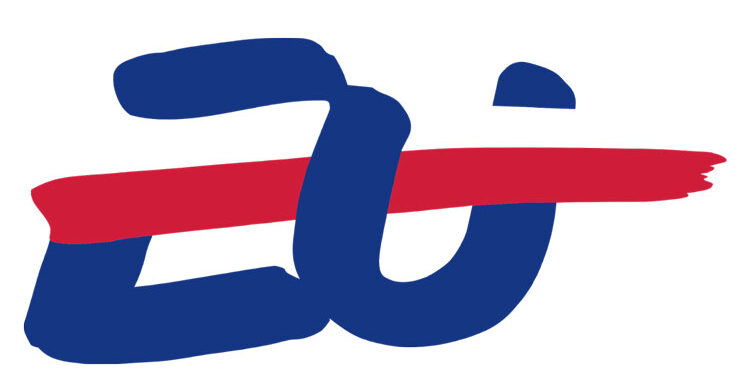 Monika Krzepkowska
Monika Krzepkowska
Charge d’affaires a.i. of the Embassy of the Republic of Poland
On May 1, 2004, Poland joined the community of democratic states in Europe, where development, peace, and cooperation are the pillars of the future. Our first presidency, in 2011, was a kind of maturity test —and we passed it— proving that we know how to lead with determination and prudence.
In January 2025, we assumed the Presidency of the EU Council for the second time, this time in more complex circumstances. The world is no longer a peaceful place. A large-scale war continues on our eastern border, its hybrid echoes affecting countries far from the front lines. In the Middle East, the situation is becoming increasingly unstable, and the change of administration in the United States has had repercussions for both security and global trade. Added to this are the increasingly visible effects of climate change, in response to which Europe must act responsibly and with a long-term vision: confronting natural disasters and redefining the human impact on the environment, the use of resources, and the quality of life of future generations. In this context, Poland responded to all these challenges with a single motto: “Security, Europe!”.
Upon assuming the Presidency, Poland was fully aware that it was not enough to effectively organize meetings and reconcile interests. We knew that the political decisions we made would impact the future of the entire European community. It was also an exceptional moment in the EU calendar: the new European Parliament opened space for new voices in the debate, and the Commission was defining its priorities. The greatest challenge proved to be maintaining the unity of the Union and strengthening effective and consensual decision-making mechanisms.
The most important pillar of our Presidency was security, understood in a multidimensional way. We understood that without security there can be no economic stability, and that without a strong economy, lasting security cannot be guaranteed. These two elements became the core of our agenda.
At the Polish initiative, security and competitiveness were incorporated into both the European Council Conclusions and the Commission’s action plan for the coming years. Concrete initiatives such as the ReArm Europe Readiness 2030 program and the White Paper on Defense were launched. The EU acquired new tools complementary to NATO and aimed at strengthening the Union’s defense capabilities.
The SAFE (Security Action for Europe) financial mechanism was introduced, providing €150 billion in defense sector investments through loans guaranteed by the EU budget. This represents not only a boost for industry but also a real response to growing threats and a step towards greater European strategic autonomy. Furthermore, the Tarcza Wschód shield, developed in Poland, was recognized as a priority security project, subject to EU support, and included in the Commission’s White Paper as part of critical capabilities.
We do not limit ourselves to actions within the EU. Poland promoted new strategic partnerships with the United Kingdom and Canada, strengthening transatlantic ties and the capacity to respond jointly to global challenges.
Poland managed to maintain its European commitment to Ukraine. As a result of our activities, two new sanctions packages against Russia were approved, which included sectors such as energy and dual-use goods. The number of ships in the Russian “shadow fleet” rose to 345, confirming the effectiveness of our actions. The Big 5 European cooperation format —in which Spain also plays a relevant role— is an essential forum for discussing Ukraine’s future as part of the European family. As Minister Albares stated: “Europe is more necessary than ever. We must act to guarantee our security.” Because supporting Ukraine is not only an act of solidarity and defense of freedom, but also an investment in the continent’s security and the protection of our European way of life.
In the economic sphere, we focused on deregulation and the completion of the single market, reducing energy prices, and supporting electro-intensive industries. Initiatives such as the Competitiveness Compass and the Clean Industry Pact reflect these efforts. We managed to soften numerous regulations, from the posting of workers to air passenger rights and the working conditions of interns. We demonstrated that the EU knows how to care not only for regulations, but also for people. We achieved unanimous support from Member States to improve the business environment and increase legal certainty. Most importantly, we reached commitments that had been waiting for years. However, simplifying European law is an ongoing task, which is why we have transferred this objective to the Danish Presidency.
At the European level, Poland also promoted greater cohesion and solidarity among states. Support for the regions was particularly important, not only in Poland but also in countries like Spain, where regional governments enjoy broad autonomy. This approach was reflected in actions supporting the ecological transition, the fight against social exclusion, and economic recovery.
Regarding enlargement, we managed to launch special instruments to support reforms in Moldova and made progress in negotiations with Albania and Montenegro.
At Poland’s suggestion, the EU addressed the need to redefine its migration policy from a security perspective. Illegal migration was recognized as a hybrid threat. New rules on the return system were adopted, and the European visa system was strengthened. The objective was clear: to ensure that no country —European or non-European— abuses the right to asylum, especially in the face of the instrumentalization of migration and its transfer into cyberspace. Another important step forward was the development of the EU Cyber Blueprint, a plan to improve the response to cybersecurity crises in Europe.
It is also worth noting that, at the suggestion of Spain, the Polish Presidency included the issue of recognizing regional languages (Catalan, Basque, and Galician) as official EU languages on the European agenda. Given that some Member States still have legal and practical concerns, we trust that this issue will be taken up again under the Danish Presidency.
The greatest achievement of the Polish Presidency was placing security at the heart of the EU’s priorities. We convinced our partners that Europe can —and must— be the safest place in the world, and that the time has come to assume responsibility for its defense and build the foundations for lasting resilience. We not only strengthened the Union’s agenda but also our position as a country capable of uniting others around common goals.
The Polish Presidency set a clear strategic course for Europe. We recognized that security —military, social, economic, and energy— is its fundamental pillar. The single market, competitiveness in innovation and technology, and trade are only sustainable when supported by values and solidarity. And it is this awareness that can become the greatest legacy of our Presidency.
At a time when the continent is facing global challenges and profound transformations, the Polish Presidency symbolized the power of common principles and the strength of a united Europe, capable of looking to the future with hope, building bridges, and strengthening Europe’s voice in the world.







